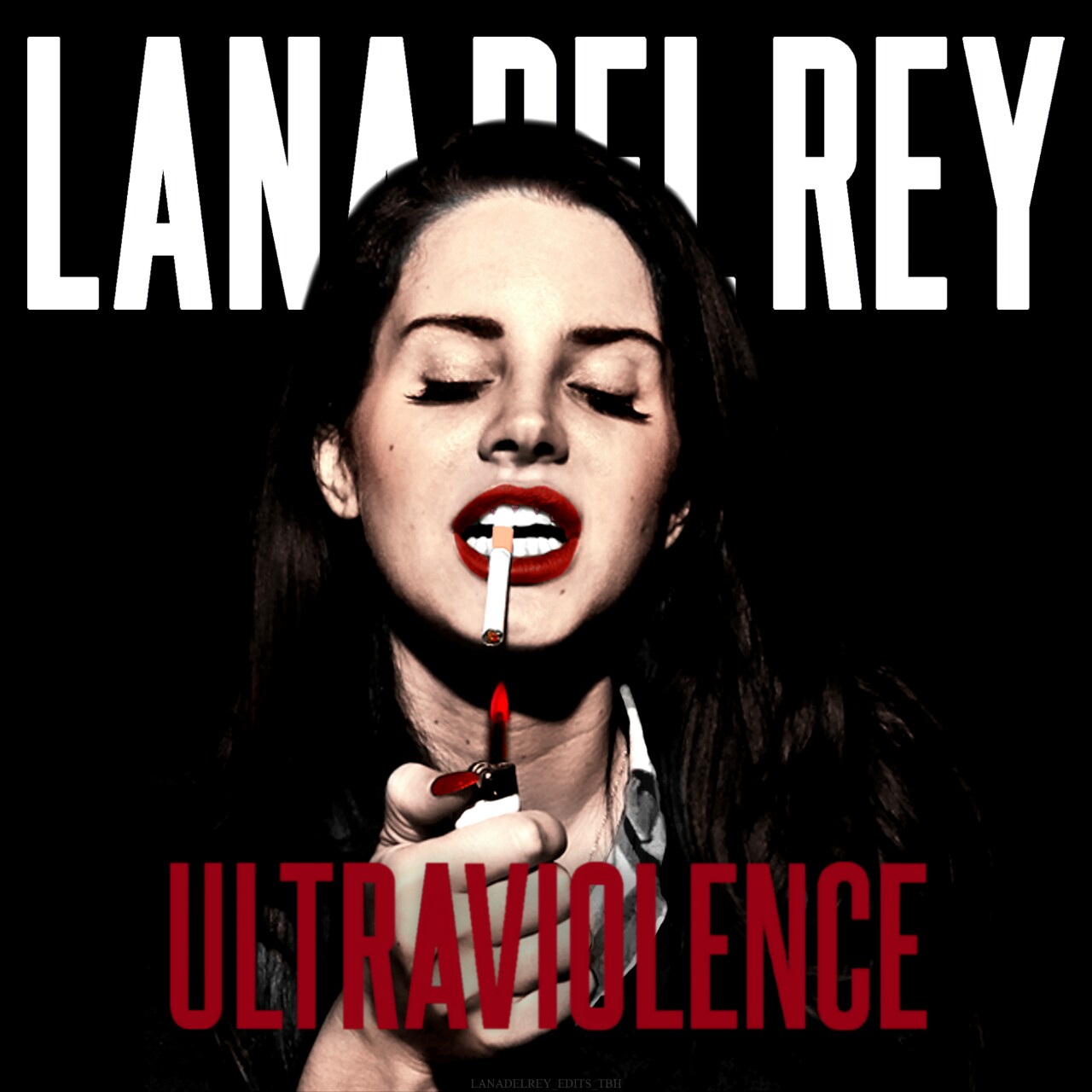Upon first listen, Lana Del Rey’s new album Ultraviolence is a complete musical departure from her 2012 album Born to Die. Produced by Dan Auerbach of The Black Keys, Ultraviolence has replaced the bombastic string and melodramatic orchestral climaxes of the earlier album with pulsing guitar riffs, echoing drums, and smooth layers of Del Rey’s confident, poised vocals.
Album opener “Cruel World” sets the tone for the rest of the record—it’s a slow burning song with purposely imperfect singing that forces the listener to experience the scarred world that Del Rey represents. The relationship between production and lyric is complex, with meticulously crafted melodies and instrumentation reflecting—or beautifully opposing—the ill-fated themes. “Shades of Cool”, for example, sees Del Rey’s vocals drowned out by a muted screaming electric guitar in an epic final minute of an otherwise airy song. The guitar acts as a perfect metaphor for the lyrical frustration of not being able to be heard by the man she loves, being drowned out by a beautifully tragic mess.
The album’s lead single “West Coast” provides a relatively upbeat and gritty sound, and “Fucked My Way Up to the Top” demonstrates that less is more, with Del Rey’s silky vocals floating above a pulsing beat and stripped-down instrumentation. “Old Money” is an absolutely stunning ode to 1960s America with the “sunset, small towns […] red racing cars”, while “Flipside”, a Western-influenced track, would have been a perfect fit for the epic, tragic final scene of Thelma & Louise.
The album is not without its flaws: Del Rey’s cover of the oft-covered “The Other Woman” doesn’t fit with the atmosphere of the rest of the album, providing it with a noticeably underwhelming finish. Some of the lyrics are questionable and grow irritating, such as “I’m a sad girl, I’m a bad girl” on “Sad Girl”, and there are certain tracks that beg for more of a climax than they are given.
But where Ultraviolence is lacking strong climaxes, it makes up for with nuance. Take the male-backing vocals—by her actual boyfriend, Barrie James O’Neil—that support Del Rey in the last thirty seconds of “Brooklyn Baby”. The single line on the track, “well my boyfriend’s pretty cool, but he’s not as cool as me”, signifies a self-awareness and somewhat humorous side. It’s a moment of both misleading and wishful thinking that Del Rey has been trying to encapsulate with everything she has done up to this point, and with her singing alongside a man, it provides a glimpse of hope and triumph.
The stripped-back, low-key and understated burning progressions of the songs on Ultraviolence create an intense, unique experience. Whilst there are missteps, it is a massive step forward for an artist that is consistently panned for being a one-time act. Whereas Born To Die was overwrought and unrelatable, Ultraviolence is an incredibly mature, cohesive piece of work that allows us to read in between the lines of the incredible production and see that one of music’s most polarizing stars knows exactly what she wants to do, how to execute it—and she does it well.









Pingback: Album Review: Honeymoon – The Lonely Starbucks Lover